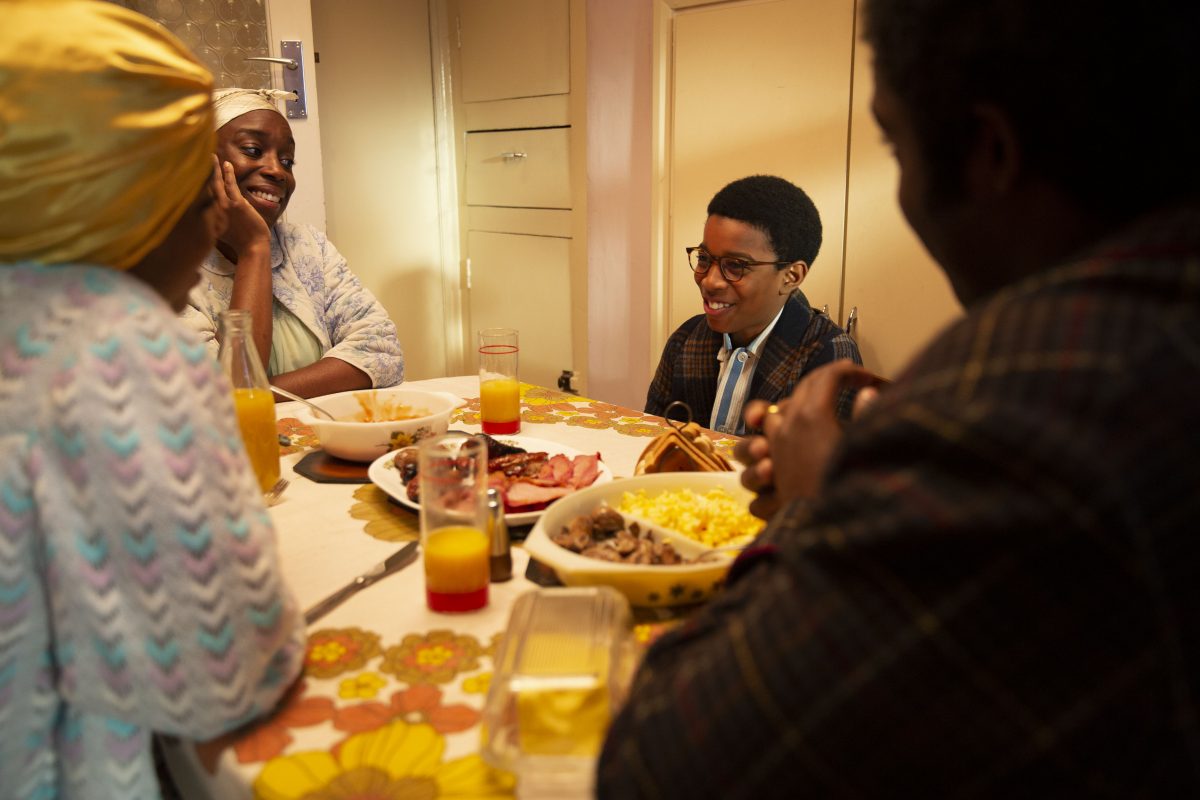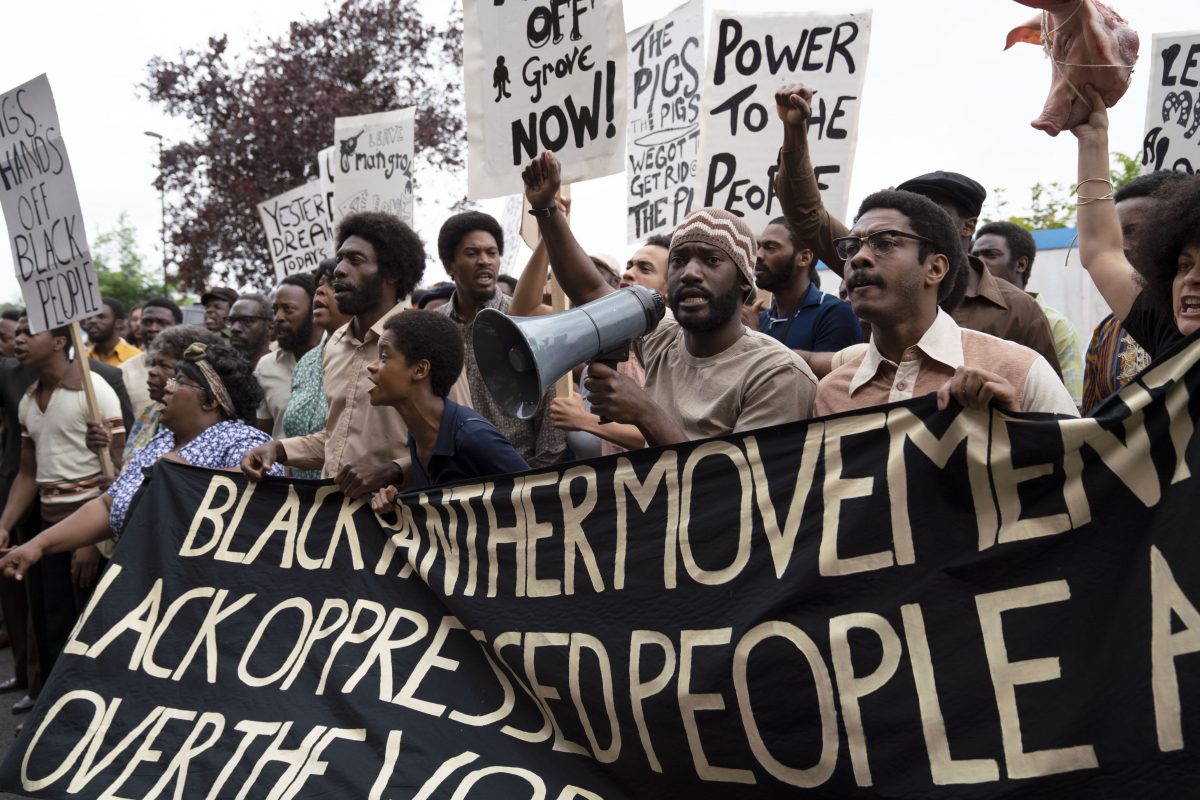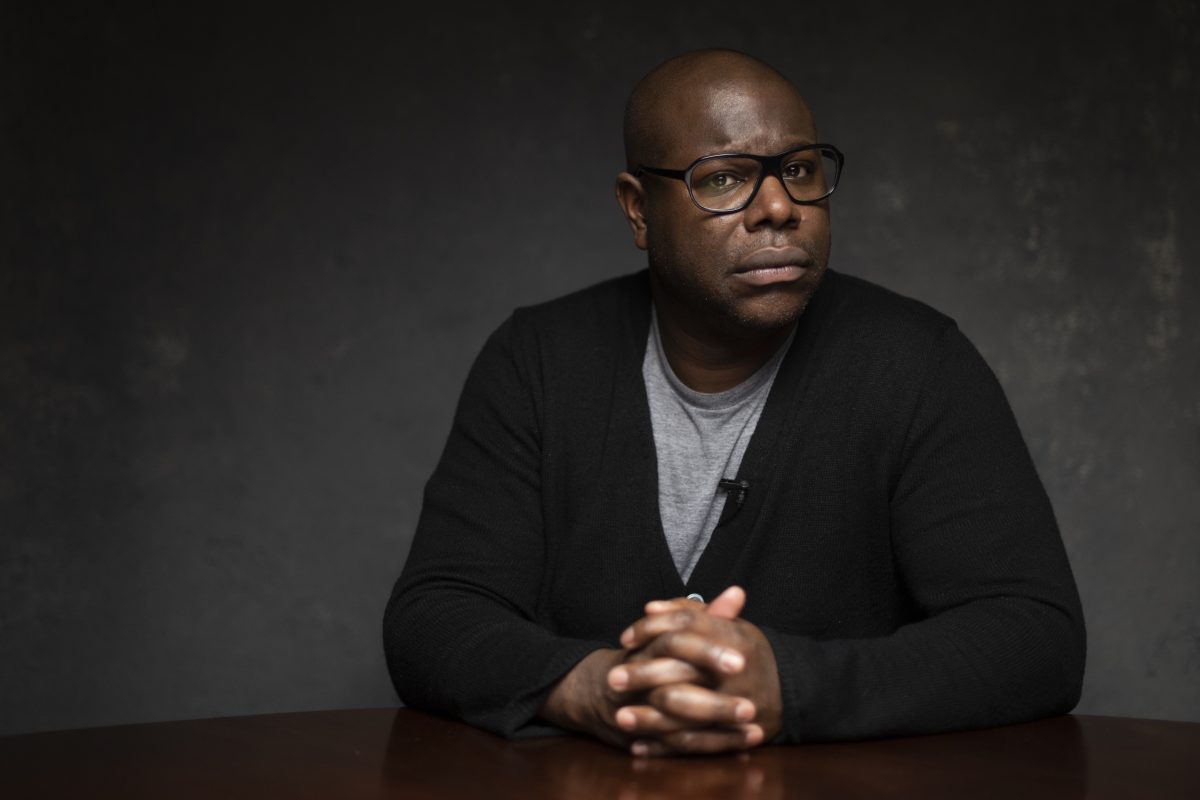Eleven years ago, following the success of his first full-length film, “Hunger,” director Steve McQueen had an idea – a series dedicated to the West Indian experience in the UK. The interest was personal. McQueen grew up in the seventies and eighties with the influences of the West Indies all around him. His father is Grenadian, and his mother Trinidadian. But the time wasn’t right for the project.
As the years passed, and as his career blossomed – from critical acclaim to awards glory, including winning the Academy Award for Best Picture for “12 Years a Slave” – the idea for a conventional series covering a single story across episodes developed into something more complex. That complex something would become “Small Axe,” a five-part anthology series that premiered on BBC1 and Prime Video this year, hardly small, but just as incisive and powerful as an axe.

The five films in the anthology, discrete stories linked by their shared interest in exploring West Indian migrant identity in the UK, seemed to arrive at just the right time. In a historical year that has seen so many reckonings on race relations, racism, white supremacy and migrant woes in and out of the West Indies, “Small Axe” felt not just important but necessary. The richness of the anthology, covering stories across the two decades seemed to confirm that McQueen got to make the project at just the right time for his creative sensibilities. Audiences over the world will be enamoured with “Small Axe”, but there’s something specific in the ways that it promises to resonate for West Indian audiences in the diaspora, and especially at home.
The care and thoughtfulness of “Small Axe” and its engagement with West Indian culture is a rare, but effective, glimpse of sincere representation that feels invaluable. I sat down with McQueen over Zoom a week ago to discuss that worth, and what it means for the West Indian diaspora in 2020. Before I begin my first question, he confirms incredulously through the screen – “Are you in Guyana?”

“Yes,” I laugh in response. I’d only just finished watching the series the night before with the last episode, “Education,” which looks at systemic exclusion of West Indian children from the British school system. A Guyanese character plays a focal role in the episode, and I remind him of this as he chuckles.
This interview has been edited and condensed for length and clarity.
In an interview you spoke about older family members watching “Lovers Rock” and feeling that sense of familiarity. Have you had many persons coming up to you since the premiere of the anthology feeling that sense of recognition of self, about that sense of representation?
Absolutely. There’s been an amazing response. There’s my aunt, of course, who “Lovers Rock” is about. She was very emotional about it during the screening at the festival. And I think there are a lot of people who are, for the first time, seeing themselves back on TV. And it’s important that they can actually look at that and look back and reminisce. But also, it’s interesting that on a Sunday night, you have people watching “Small Axe” in families. Grandparents, parents and children, are looking at this and having discussions about things in general: Did this happen? Did “Mangrove” happen? Did these blues happen like in “Lovers Rock? Questions that had never really came to the surface are there, and it’s amazing.
With that idea of communal watching. You’ve said previously, you really wanted them on television in terms of accessibility.
Yes, mainly for my mother to watch them on TV for sure.
That’s a great reason. Speaking of access, though. Something that has been slightly disappointing for audiences in this region has been access. Like you said, being on television was an important part of making the series accessible. But for some of the countries in the region – the content from so many streaming platforms is geo-blocked. And I was wondering how you feel about that.
Well, there’s a deal being made with the South American distributor, that’s what I heard. And soon people will have access to it. Because I was like, ‘What the hell is going on in the West Indies that they can’t get access?’ So, some kind of deal is being made with the South American distributor which can distribute through the West Indies.
s I watched “Education” last night and the way it emphasised how West Indian immigrants in the UK were excluded from knowledge, it seemed quite [perceptive of] the notions of how access to media, or lack of access, repeats that kind of exclusion where persons in the region without access have their artistic and creative development affected by that exclusion.
Absolutely. I feel the same. There’s no point in making something that is about and for the West Indian population and the West Indian experience, and not having the West Indians watching it. It doesn’t make any sense. So, I know there are talks. And if that falls through, guess what? I’ll personally be going to those countries and doing a broadcast of the films, for sure.
We will welcome you. In thinking of the varying narrative strands in “Small Axe”, I found myself seeing so many parallels to previous Caribbean texts and I was wondering whether that was a mere coincidence. Did you have any specific artistic influences in mind that shaped the vision you had?
Actually, other than the West Indians that were around me, no. I think maybe for me, the music may have been the biggest artistic influence. Things like the Mighty Sparrow scene in “Mangrove”. Things that people felt, that were important, when the characters were together – that community idea. The whole idea of how I grew up, and what we used to say, how they would interact with each other and what they listened to. So, it wasn’t so much an idea of being influenced by specific artistic work. Instead, it was more that I was influenced by my first-hand memory of being a part of this community.
You mention Sparrow, and throughout the course of the anthology, you have that recurring use of music as a uniting force. Music becomes the pulse of the emotions. How involved were you in the music process? Did you have intentions of specific music before you began shooting?
More or less. I would say 80% for sure. For example, the scene where they sing that Mighty Sparrow song in “Mangrove” came from my mother. I called her up one and I said, ‘Mum what song would they be singing in a scene like that, do you think?’ And she didn’t even answer with words. She answered with a song, (singing) “Jean and Dinah.” I was like Jean and what? Jean and who? And that was wonderful. [His face lights up as he speaks about his mom’s musicality.]
My dad is a calypsonian so I get that respond-in-a-song dynamic.
Absolutely! It was something else. She just began singing. And I liked that aspect. So, a lot of it was worked out before. Because the music choices informed the writing and the rhythm, so Courttia and Alasdair and all of us it informed us. [McQueen cowrites three of the five episodes with Alastair Siddons, and two with Courttia Newland.]
Speaking of Courttia, who wrote “Lovers Rock” with you, did the two of you know before you shot it, that you wanted that entire long take where the entire song “Silly Games” is sung at the party?
That was entirely me and I wanted that. Because so knew I was going to do that. Because what happened is that I knew how I wanted it. And how the DJ was going to build into that. So Courttia wrote certain aspects, and then I rewrote over that. Because I knew the beginning and the middle and the end and how I wanted that to be. This scene represented this moment that she could get lost in, and I wanted to show that effect of the music in that long take. I just knew that she and we needed to get lost in it.
And, in a way that scene kind of becomes a moment that you might even extract from the film, the way it’s doing so much visually, and formally. I was thinking that it was like an entire small movie in itself.
Yes, but like, that would miss the point. The scene wouldn’t be anything without everything else. Like I’ve seen persons selecting individual scenes, and I get it. But it’s one of those things, where it’s an amalgamation – you can’t have one without the other. Context is everything here. The scene depends on the film and these films depend on the context of each other. It’s an amalgamation.
I like that idea of context and amalgamation. So rather than this monolithic view of blackness over five films, each episode is formally, aesthetically, thematically different across the six hours but they inform each other. I was wondering if you could you could expand on your creative process in working through that dynamism and the idea of this community as discrete parts but communal whole, and the ways that affected your writing and directing process.
I wasn’t even thinking about that in a specific way, to be honest.
Really?
I mean we are not a monolith, so how could I do that? There’s no way I would represent us that way. We’re extremely different and multifaceted characters and people. I couldn’t even begin to think in those kinds of terms. So, there’s no way I could not have written something like that. It’s a given, as far as I am concerned, that we are a community of different people with our own ideas. So, the work would have to represent that.
I’m glad it’s a given for you. Because it doesn’t seem to be a given for some when they think of what the West Indies is.
How do you mean? Other people see it differently? Tell me.
I think there is, sometimes, in readings of West Indian works, and even of this series where there’s a flattening of the nuances? As someone from this region, what I find valuable is the way “Small Axe” has an understanding of the region as polyphonic with its own way of being. And I’ve appreciated reading your discussions on the pieces, the ways you have resisted the ideas of reading them through the lens of American politics, or even British politics. Which, for me, threatens to flatten the context, and turn it into something it’s not. No?
Oh, of course. Of course. I’m very pleased you say that. Because that’s not what it’s about. It’s not about the American politics. And there is that issues where films of this type become Americanised in their readings, and it’s not about that. It’s about these West Indian people. Where they are from. What they have to endure. But also, it’s that these people are in a home away from home. And it’s about what they bring with them. They bring parts of what they love from the West Indies to Europe.
Exactly! I like that. And even as the films each recognise that danger of whiteness, it’s not centred? Like even in moments where the characters directly encounter issues of racism and white supremacy, the focus returns to the West Indian culture. And, I was wondering whether that may have been surprising for some audiences expecting something more traditionally about whiteness or racism.
Absolutely. Absolutely. What I found interesting in “Mangrove” were a couple of critics talking about the court case being a bit didactic, for example. And, I think, it only seems didactic for them because what happens in “Mangrove” is that black people have their day in court and they are talking. And, it’s interesting – here is this chance for black people to cross-examine… the establishment. And this happened. But, as soon as black people can verbalise and defend themselves in the highest court in the land and cross-examine the institution of whiteness, it becomes ‘didactic’. Or it becomes a bit too wordy. For the first time we can speak, and have our day in courts. And they don’t like the ways that that whiteness is being examined. And I find that interesting.
Do you think, though, that it’s that lack of visibility of black art that creates that kind of a panic? Like the recent controversy over the black family in that Sainsbury’s ad in the UK that caused a stir? Is it because persons are so unused to seeing blackness as a fact that this panic arises?
You know, I don’t know. I think the reaction to that ad was to the summer, and the protests and people thinking, ‘Crikey, they’re taking over our adverts.’ [He pauses and chuckles.] You know, first they’ve taken over our streets and now they’ve taken over our adverts and coming into our homes. And the thing is, it’s not angry people it’s just a father and daughter having a conversation about food. And it’s crazy. A black person eating their food, or playing Scrabble is threatening.
So, I wanted to end by picking your brain. There’s a recurring debate that’s happening about divergence and convergence of television and cinema, and “Small Axe” has become a part of that. Is it cinema? Is it television? I was wondering if you would want to wade into that conversation, as a filmmaker, in thinking of what makes the medium.
I don’t really care. I mean, that’s your job. My job is just to make my work. [He grins at this response.]
Okay, you got me there.





